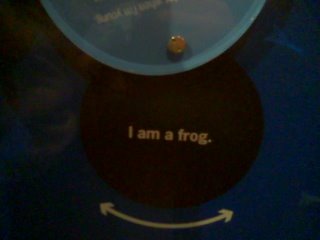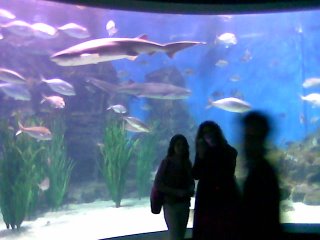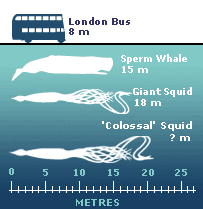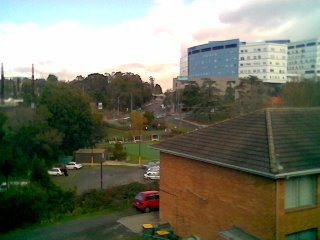It always comes as a shock and a revelation whenever one finds something new about oneself. Or rather, when one realizes that one actually has some attitudes that one never expected. I never expected that I would be one of those Pinoys that was subconsciously assuming that 'the grass is greener on the other side'.

When I touched down here, I was smitten by the same sort of fever I once observed in Ærynn, the sort of fever that constantly 'realizes' just how much better Oz is over the Philippines.
I also realized that, inspite of all this, I am still very much a Pinoy. I still catch myself saying 'sana ganyan din sa
atin,' as if 'atin' was still the Philippines. Ærynn is already well on her way down the road of becoming a Melbourne citizen (identifying with Melbourne whenever it is held in comparison with Sydney, for example) and feeling that Victoria is her state. I think I am fortunate that I don't feel terribly homesick or experiencing the debilitating type of culture shock (I mean, I still have it, but not to a debilitating degree) because I came here with a 'home' waiting for me. But, as I said, I am still so much the Pinoy in that I always wish and, indeed, insist that some of the wonderful things I find here should also be found in the Philippines. It was only a bit later that I realized that Oz and the Philippines maybe different, but not really 'worlds apart' different.
Take the self discipline, for instance. In the Pinas, I got used to long, unorderly queues to the MRT/LRT with security checking everything and almost everything banned on the train. The train stations are basically sealed off. But here security is so lax. It's relatively easy to board a train and step off without a ticket. I've even seen people bring along dogs, bicycles and into the trains.

I've been told that times when security is heightened is when there are terror threats or big events like the last Commonwealth Games. But, in the main, it seems, Aussies are perfectly willing to obey rules
without having to be told all the time by someone else. And so, no one eternally having to check your pockets and look into your bags.
Apparently a self-regulating country is a much
free-er country than one that needs too much 'maintenance' and 'regulation.'
Yet, inspite of all the self-discipline, I am beginning to find that one of the things that Pinoys and Aussies will share is that there will be some people who are thoughtless and rude. Public transport passengers whinge (complain) through MX (a free afternoon newspaper) about the rudeness of people along their train line—people jostling old people aside, or not allowing passengers to get down first before boarding, among other complaints. When I read about that, I actually said aloud
'Ah. . . parang Pinas din pala.' I'm sure that there are certain places in Manila and Quezon City, or even the Philippines that have their well-mannered communities (up until the late 90's, I would have said Baguio City every time). But although Manila has a much denser population than Melbourne I found more polite, helpful people here than back there. Perhaps the added stress of living so closely to too many people is detrimental to manners.
So, whenever I hear an Aussie complain about Melbourne 'losing the Melbourne spirit that we had during the Commonwealth Games' (the spirit so akin to the mythical
bayanihan spirit we Pinoys supposedly have) I smile inwardly a little bit. With Pinoy attitudes and manners still fresh in my mind, I still think that Aussies are better off. But that isn't very fair. It is, after all, a matter of relativity. Maybe someday, when I get to know Aussies better, maybe I, too, shall think that things can still be better.
One other thing that I didn't know that I didn't think I would see in Melbourne is poverty and unemployment. I mean, this is the country of opportunity! This is the country that actually gave me my Tax File Number, my Medicare number, and help in finding work within my first month here. I mean, there are actually systems already in place to help people like me find not just work but the sort of work that is suited to me. For free. While the universities in the Pinas would do its level best to make you go through the motions of education (not caring whether you actually learn skills or not as long as you end up with 'a degree'), they cast you adrift as soon as you graduate. Then you find that all those years of tuition was wasted on acquiring outdated skills or knowledge, that you have to undergo more training to make you fit for the workplace. So I am pleasantly surprised that the Aussies actually put a premium on
what you are actually able to do.
Yet there still is poverty. There still is unemployment. Right here. Right now. Homeless people stand out anywhere, and especially here.
Still, it seems that Aussies accept that poverty and unemployment are a large enough problems in Oz that they created those very systems that are helping me now just to stem the tide. Apparently, even if we have a highly educated and literate society it doesn't necessarily mean an end to poverty (as Pinoy politicians believe with so much faith). I have been told, in fact, in one of those free employment seeking seminars that the phrase 'it isn't what you know but who you know' is as true in Oz as it is in the Philippines. What d'ya know? May palakasan pa rin.
The difference is that those who are unemployed here are those who haven't gone to 'Uni' (that is, the University, or college), or have very few skills, or started out too poor to go to school and get those skills or are migrants. On the occassion that they
are Uni graduates and still unemployed, it's because the job market is saturated and therefore has become competitive. Which is all very nice and logical anyway. Of course, these may very well turn out to be generalisations and I may be proven wrong at a later date.
In the Pinas, however, where people claim University education as a right, and therefore all should have it, every job is saturated with people who are, in theory, over-qualified. High school students here can find jobs whereas in the Pinas if you are a high-school graduate you might as well be a 'no read, no write' person (which, I sadly observe, may not be very far from the truth) and no job other than the really low-paying ones are open to you.
But the Philippines does not hold the monopoly on the 'dumbing down' of education. Just this morning I was watching the
Sunrise program on Seven (which is their version of
Unang Hirit, which is coincidentally shown on GMA
7) and there was a report on the 'dumbing down' of English courses to make it easier for students to pass. Sounds familiar, since in the Philippines, it is being done for decades. The younger generation (apparently worldwide) are less able to read and write than their predecessors. It is a slow descent into entropy. So far, the Aussies are trying to fight it, as opposed to the Pinoy way of justifying it. At any rate, the Prime Minister (John Howard) seems to be demanding the inclusion of more classics on the reading list to improve matters (imagine Tita Glo, may she leave office, trying to convince the already lazy Pinoy students to read more books—it might be what finally topples her from power).
I also altruistically believed that teachers in Oz may be better off than teachers in the Philippines. Then I remembered this
old article I wrote about
an article written for The Age some time ago, and I'm not in such a hurry to become a teacher here after all.
As my wife Ærynn puts it, one only truly realizes that the Philippines is a 'third-world country' only when one is living in a more developed country. Yeah, humans are humans everywhere, and the same flaws in Pinoys can als be found
When in Oz...
Whingers are those who whinge or complain too much (seems to have come from 'whine' but is pronounced to rhyme with 'hinge'). Looks like I've done a bit of whinging myself. in Aussies, but here I find a basic truth resonating again and again but which people everywhere do not want to admit:
there is more freedom when there are limits. Pinoys do whatever they want, and are allowed to do whatever they want because of widespread and endemic corruption down to the grass-roots level, and so they have to contend with security guards everywhere and not so efficient systems. It is what they have foisted on themselves and it is what they deserve. Aussies, too, are prone to the same follies, but they have a set of strict rules which actually gives greater freedom.
It is a major controversy now that the police are pushing to have the law changed that will allow parents to be held responsible for the wrong-doings of their errant children. If this becomes a reality soon, maybe Australia will become a better place to raise kids after all.
But, these are the words of one who's only been here less than a month, and I'm only calling it as I now see it. I shall keep watching, and we shall see. In the meantime, my grass is green.

Someone once told me
The grass is much greener
On the other side
And I paid a visit
(Well, it's possible I missed it)
It seemed different,
Yet exactly the same
'Til further notice,
I'm in-between
From where I'm standing,
My grass is green
(Someone once told me
The grass is much greener
On the other side)(theme song from As Told by Ginger)


































